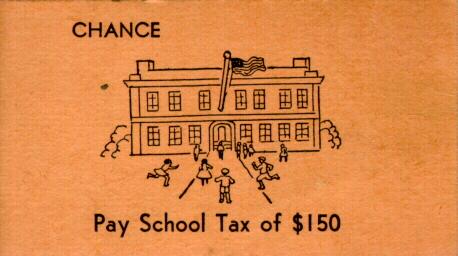Government Grants
Business Grants
Home Owner Programs
Federal Programs
About Us
SAMHSA Treatment Drug Courts
The Substance Abuse and Mental Health Services Administration (SAMHSA), Center for Substance Abuse Treatment (CSAT) is accepting applications for fiscal year (FY) 2018 Grants to Expand Substance Abuse Treatment Capacity in Adult Treatment Drug Courts (ATDC) and Adult Tribal Healing to Wellness Courts.
The purpose of this program is to expand substance use disorder (SUD) treatment services in existing adult problem solving courts, and adult Tribal Healing to Wellness courts, which use the treatment drug court model in order to provide SUD treatment (including recovery support services, screening, assessment, case management, and program coordination) to defendants/offenders.
Recipients will be expected to provide a coordinated, multi-system approach designed to combine the sanctioning power of treatment drug courts with effective SUD treatment services to break the cycle of criminal behavior, alcohol and/or drug use, and incarceration or other penalties.
Applicants should propose to increase access and availability of services to a larger number of clients increasing the number of individuals served and the gaps in the continuum of treatment for individuals in these courts who have treatment needs for SUD and/or co-occurring substance use and mental disorders.
Grant funds must be used to serve people diagnosed with a SUD as their primary condition.
SAMHSA will use discretion in allocating funding for these awards, taking into consideration the specific drug court model (ATDCs and Adult Tribal Healing to Wellness Courts), as appropriate, the number of applications received per model type, and geographic distribution.
The purpose of this program is to expand substance use disorder (SUD) treatment services in existing adult problem solving courts, and adult Tribal Healing to Wellness courts, which use the treatment drug court model in order to provide SUD treatment (including recovery support services, screening, assessment, case management, and program coordination) to defendants/offenders.
Recipients will be expected to provide a coordinated, multi-system approach designed to combine the sanctioning power of treatment drug courts with effective SUD treatment services to break the cycle of criminal behavior, alcohol and/or drug use, and incarceration or other penalties.
Applicants should propose to increase access and availability of services to a larger number of clients increasing the number of individuals served and the gaps in the continuum of treatment for individuals in these courts who have treatment needs for SUD and/or co-occurring substance use and mental disorders.
Grant funds must be used to serve people diagnosed with a SUD as their primary condition.
SAMHSA will use discretion in allocating funding for these awards, taking into consideration the specific drug court model (ATDCs and Adult Tribal Healing to Wellness Courts), as appropriate, the number of applications received per model type, and geographic distribution.
Related Programs
Substance Abuse and Mental Health Services_Projects of Regional and National Significance
Department of Health and Human Services
Agency: Department of Health and Human Services
Office: Substance Abuse and Mental Health Services Adminis
Estimated Funding: $15,200,000
Office: Substance Abuse and Mental Health Services Adminis
Estimated Funding: $15,200,000
Obtain Full Opportunity Text:
Grants to Expand Substance Abuse Treatment Capacity in Adult Treatment Drug Courts and Adult Tribal Healing to Wellness Courts (Short Title: SAMHSA Treatment Drug Courts)
Additional Information of Eligibility:
Eligible applicants are state, local, and tribal governments with direct involvement with the adult treatment drug court/Tribal Healing to Wellness Court, such as: • State governments; the District of Columbia, Guam, the Commonwealth of Puerto Rico, the Northern Mariana Islands, the Virgin Islands, American Samoa, the Federated States of Micronesia, the Republic of the Marshall Islands, and the Republic of Palau are also eligible to apply.
• Governmental units within political subdivisions of a state, such as a county, city or town, and individual adult treatment drug courts.
• Federally recognized American Indian/Alaska Native (AI/AN) tribes, tribal organizations, and consortia of tribes or tribal organizations.
Tribal organization means the recognized body of any AI/AN tribe; any legally established organization of AI/ANs which is controlled, sanctioned, or chartered by such governing body, or which is democratically elected by the adult members of the Indian community to be served by such organization, and which includes the maximum participation of AI/ANs in all phases of its activities.
Consortia of tribes or tribal organizations are eligible to apply, but each participating entity must indicate its approval.
A single tribe in the consortium must be the legal applicant, the recipient of the award, and the entity legally responsible for satisfying the grant requirements.
Eligible adult drug court models include Tribal Healing to Wellness Courts, Driving While Intoxicated (DWI)/Driving Under the Influence (DUI) Courts, Co-Occurring Drug and Mental Health Courts, Veterans Treatment Courts, and Municipal Courts using the problem solving model.
Public and private nonprofit organizations, such as SUD treatment providers, have a pivotal supporting role in treatment drug court programs and may be sub-recipients/contractors to the applicant.
However, they are not the catalysts for entry into drug courts and are, therefore, restricted from applying.
SAMHSA strongly believes that the court is in the best position to administer this program because the court partners with selected treatment providers on the course of treatment for drug court clients.
It is allowable for an eligible entity to apply on behalf of one or more ATDC or Adult Tribal Healing to Wellness Courts, either through a single application or several applications.
When the state/local/tribal government (city/county) or eligible entity applies on behalf of an ATDC or Adult Tribal Healing to Wellness Court, the applicant will be the award recipient and the entity responsible for satisfying the grant requirements.
When multiple jurisdictions apply within one application, Letters of Commitment from each ATDC and Adult Tribal Healing to Wellness judge must be included in Attachment 1 stating they intend to meet the grant and reporting requirements.
This grant program is not intended to provide start-up funds to create new ATDCs or Adult Tribal Healing to Wellness Courts.
Eligible drug courts must be operational on or before September 1, 2018.
Operational is defined as a having a set of cases and seeing clients in the drug court.
By signing the cover page (SF-424) of the application, the authorized representative of the applicant organization is certifying that the treatment drug court is applying for funds is operational, as defined above, on or before September 1, 2018.
ATDCs and Adult Tribal Healing to Wellness Courts funded in FY 2016 under announcement TI-16-009 and FY 2017 under announcement TI-17-001 are not eligible to apply for this program.
Full Opportunity Web Address:
https://www.samhsa.gov/grants/grant-announcements/ti-18-008
Contact:
Agency Email Description:
FOACSAT@samhsa.hhs.gov
Agency Email:
Date Posted:
2017-12-22
Application Due Date:
Archive Date:
2018-03-23
Social Entrepreneurship
Spotlight
Wealthy Resource Generation: Tax Us More!

Resource Generation, a group of young people who grew up wealthy, wish to give something back. They published a letter this week that implies advocacy and participation in structural change that will ultimately improve the resourcing of schools in Pennsylvania.

